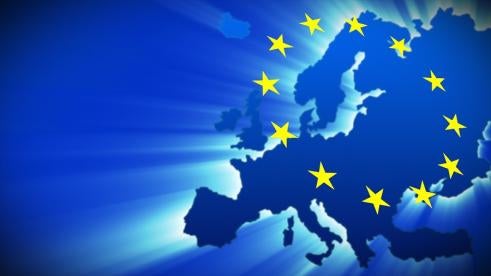Poland
A. UOKiK cracks down on Resale Price Maintenance in the dietary supplements market.
On Aug. 30, 2021, the president of the Office of Competition and Consumer Protection (UOKiK) issued a decision stating that the prices of Solgar brand dietary supplements were set in collusion with Solgar’s retailers. Solgar is a U.S. company that manufactures dietary supplements such as vitamins and herbs and sells them via internet and retail outlets in Poland. The president of UOKiK discovered that Solgar had agreed to minimum resale prices for its dietary supplements with its retailer counterparties. The investigation showed that since 2010, retailers could not sell Solgar products for lower prices than the prices imposed by the company. Solgar threatened its distributors with retaliation for non-compliance, such as loss of preferential terms of cooperation or even termination of the agreement. Retailers also monitored each other’s rates and informed Solgar if any of them applied lower rates. It was discovered in the proceedings that some members of the management board of Solgar coordinated and supervised the price-setting activities of the company’s other employees. A sanction of over PLN 1.2 million (approx. USD 300,000) was imposed on the company and a penalty in the amount of over PLN 280,000 (approx. USD 70,000) was imposed on two members of the management board personally responsible for the collusion.
B. Air Liquide’s acquisition of Betamed cleared conditionally by president of UOKiK.
On Sept. 7, 2021, UOKiK gave conditional approval for the takeover of Betamed by Air Liquide. Each of the companies operates in the Polish National Health Fund-financed medical services market. There is concentration overlap between these two companies in regional markets for publicly funded home mechanical ventilation services, which are contracted by the National Health Fund and are available to patients requiring ventilator support who can be cared for at home. Entrepreneurs compete on two levels in this market. First, within the framework of competition proceedings conducted by the National Health Fund. Second, if, in a given area, there are several entities with contracts signed with the National Health Fund, then they compete for patients based on quality of services.
UOKiK found that the transaction would lead to competition concerns in the regional markets in two voivodeships (i.e., provinces), where patients would be deprived of the choice of which entity to use. At the same time, UOKiK stated that it was possible to impose certain conditions on Air Liquide, the fulfilment of which would eliminate the competition and patient health risks. One of the conditions obligates Air Liquide to set up a company (or companies) to which it will transfer Betamed’s assets related to the provision of mechanical ventilation services to at-home patients in these two voivodeships, in particular: contracts with the National Health Fund, contracts with employees, accounting, technical and commercial documentation, patient databases as well as equipment and fixed assets necessary to perform the contract with the National Health Fund. These entities will be sold to an independent investor unaffiliated with Air Liquide. The second condition obligates the purchaser to be approved by UOKiK.
Italy
A. ICA opens formal investigation into merger between Nexi S.p.A. and SIA S.p.A.
On Sept. 3, 2021, the Italian Competition Authority (ICA) opened a formal investigation regarding the possible incorporation of SIA S.p.A into Nexi S.p.A. The latter is a public company operating in the payment services sector. SIA is active in the design, implementation, and management of services for financial institutions, central banks, companies and public bodies, as well as in the payment services sector.
The merger would determine the integration of players active at different levels of trade and affect multiple markets within the digital payments sector—in particular merchant acquiring, processing, payment card issuing, retail payment clearing, interbank data transmission, as well as services for the supply and maintenance of ATMs. According to the ICA, given the high market shares of the participants and the vertical integration of many of the sectors involved, the merger of SIA into Nexi could lead to the creation or strengthening of a dominant position by the new entity, with horizontal, vertical, and conglomerate effects.
B. ICA opens investigation over possible abuse of dominance by incumbent operator in the national market of recycling of polyethylene goods.
On Aug. 31, 2021, the ICA initiated an investigation for abuse of dominant position against Consorzio Polieco (Polieco), a private, nonprofit consortium whose members include, among others, producers and users of polyethylene goods. The consortium, which was established by law, is active in the withdrawal, collection, recycling, and recovery of polyethylene goods, excluding packaging. The consortium operated under a monopoly regime since its establishment in 1997 until the creation in 2020 of Consorzio Ecopolietilene (Ecopolietilene) and still holds a dominant position in the national market for the recycling of polyethylene goods. The latter is an autonomous consortium active in the recycling of polyethylene waste, to which entities that are not part of Polieco may adhere. The investigation was initiated following a complaint submitted by Ecopolietilene, alleging that Polieco perpetrated a complex abusive strategy. According to the complainant, Polieco (i) first attempted to prevent the creation of a competitor, by challenging the related ministerial authorization and (ii) then carried out a series of conducts aimed at maintaining its current customers, as well as acquiring potential demand.
In particular, Polieco allegedly tried to “discourage” some companies to join the competing consortium, stressing that the establishment of the latter had been challenged (by a legal action brought by the incumbent operator itself). Moreover, Polieco allegedly solicited several companies to regularize past contributions, offering at the same time financial incentives, conditional on joining Polieco, and threatening legal action and sanctions by the public authorities in case of refusal. In light of the above, ICA opened an investigation against Consorzio Polieco, granting it 60 days to be heard by the ICA. The proceedings must be concluded by Oct. 31, 2022.
European Union
A. EU Courts.
1. Court of Justice refers a case on tax exemptions granted by Belgium to multinational companies by means of tax rulings back to the General Court for reconsideration.
On Sept. 16, 2021, the Court of Justice of the European Union (CJEU) set aside the EU General Court’s (GC) February 2019 judgment concerning Belgium’s system of exemptions for the excess profit of Belgian entities. The CJEU held that the Commission had correctly qualified the measure as an aid scheme (as opposed to a plurality of individual aids).
By its decision of Sept. 16, the CJEU noted that three cumulative conditions must be met for a State measure to be classified as a “scheme”: (i) the aid may be granted individually on the basis of an act, a concept including a “consistent administrative practice” by the national authorities; (ii) no further implementing measures are required; (iii) potential beneficiaries must be defined “in a general and abstract manner.” According to the CJEU, the GC erroneously found the existence of an aid scheme because (i) it misapplied the concept of an “act” in that it did not consider the “systematic approach” adopted by the Belgian Authority and (ii) it failed to consider that the Belgian tax authorities had systematically granted the excess profit exemption when the conditions were satisfied (i.e., with no further implementing measures).
Accordingly, the CJEU set aside the challenged judgment and referred the case back to the GC for it to rule on the classification of the measure as State aid.
2. General Court dismisses Altice Europe’s action against the Commission decision imposing two fines in relation to the acquisition of PT Portugal.
On Sept. 22, 2021, the GC issued a judgment confirming the validity of the EC’s decision of April 24, 2018, imposing fines against Altice Europe NV—a multinational cable and telecommunications company—in relation to the acquisition of PT Portugal SGPS SA, a telecommunications and multimedia operator.
In the decision, the EC found that Altice implemented the concentration with PT Portugal before having notified the transaction and, thus, without receiving clearance by the EC. According to the EC decision, some of the preparatory clauses of the share purchase agreement gave the acquiring company a right to veto the appointment of senior management of PT Portugal and intervene in its commercial policy. In addition, the EC found that the rights set forth under the clauses actually had been exercised on a number of occasions, also causing the exchange of competitively sensitive information concerning PT Portugal. Therefore, Altice received two fines of € 62,250,000.00 each for having infringed both the obligation to notify the concentration and the prohibition on implementing the concentration prior to its notification and clearance pursuant, respectively, to Article 4(1) and Article 7(1) of the EU Merger Regulation.
The GC rejected Altice’s plea that the contested breaches were redundant and that the order violated principles of proportionality and the prohibition of double punishment. According to the judges, the two above-mentioned provisions pursued autonomous objectives and set forth different obligations: an affirmative obligation to notify before implementation and a negative obligation to wait until the EC authorized the deal. The GC also ruled that the acquiring company had a decisive influence—actually exercised on several occasions—over PT Portugal since the former held the power to co-determine the appointment of the senior management, as well as the right to veto any price change or amendment to standard terms and conditions. PT Portugal, in fact, had to require written consent from Altice for such actions, with a penalty in case of violation.
The initial fines were reduced by 10% given that Altice notified the transaction and collaborated with the Commission in the clearance process.
B. EU Commission.
1. Commission proposes a common charger for electronic devices.
On Sept. 23, 2021, the EU Commission announced a proposal for a revised Radio Equipment Directive to harmonize charging port and fast-charging technology: USB-C will become the standard port for all smartphones, tablets, cameras, headphones, portable speakers and handheld videogame consoles. In addition, the Commission proposes to unbundle the sale of chargers from the sale of electronic devices to improve consumer convenience and reduce the environmental footprint associated with the production and disposable chargers, thereby supporting the green and digital transitions.
The proposal for a revised Radio Equipment Directive will need to be adopted by the European Parliament and the Council by ordinary legislative procedure. A transition period of 24 months from the date of adoption should give industry ample time to adapt before the revised directive takes effect.
2. State aid: Commission concludes Italian loans worth €900 million to Alitalia are illegal aid.
On Sept. 10, 2021, the European Commission concluded that two State loans—worth €900 million— granted by Italy to Alitalia in 2017 are illegal under EU State aid rules. Italy must therefore recover the illegal State aid, plus interest, from Alitalia. Alitalia is an Italian airline, providing domestic and international air transport services, maintenance, ground handling and cargo transportation. It has been losing money since 2008. In early 2017, Alitalia was in urgent need of liquidity, but it had lost access to credit markets due to its deteriorated financial situation. In order to keep Alitalia operating, in May and October 2017, Italy granted the company two loans for €600 million and €300 million, respectively. At the same time, Alitalia was placed into special bankruptcy proceedings under Italian bankruptcy law.
Under EU State aid rules, public interventions in favor of companies can be considered free of State aid, when the State acts not as a public authority, but on terms that a private operator would have accepted under market conditions (the market economy operator principle). The Commission's investigation showed that, when granting the two loans to Alitalia, Italy did not act like a private investor would have done, as it did not assess in advance the probability of repayment of the loans with interest.
3. Commission approves merger of BME and Saint-Gobain Distribution the Netherlands.
On Sept. 7, 2019, the European Commission approved the acquisition by BME Group of Saint-Gobain Distribution the Netherlands (SGDN). BME is active in the distribution of building materials via general builders’ merchant (GBM); specialist builders’ merchant (SBM); and do-it-yourself (DIY) stores in Austria, Belgium, France, Germany, the Netherlands, Portugal, Spain and Switzerland. BME operates GBM, SBM and cash-and-carry stores under different brands. SGDN is active in the Netherlands as a distributor of building materials via GBM and SBM stores. Moreover, it is active in the wholesale of ceramic tiles and of sanitary, heating, and plumbing products. SGDN operates 35 GBM stores in the Netherlands under three different brands.
The European Commission decided not to oppose the notified concentration and declared it compatible with the internal market and with the EEA Agreement. This decision is adopted in application of Article 6(1)(b) of the Merger Regulation and Article 57 of the EEA Agreement.
Pamela J. Marple, Yuji Ogiwara, Stephen M. Pepper, Gillian Sproul, Hans Urlus, Dawn (Dan) Zhang, Pietro Missanelli, Anna Rajchert, Mari Arakawa, Filip Drgas, John Gao, Marta Kownacka, Massimiliano Pizzonia, Jose Abel Rivera-Pedroza, Chazz Sutherland, Ippei Suzuki, Rebecca Tracy Rotem and Alan W. Hersh contributed to this article.







 i
i


